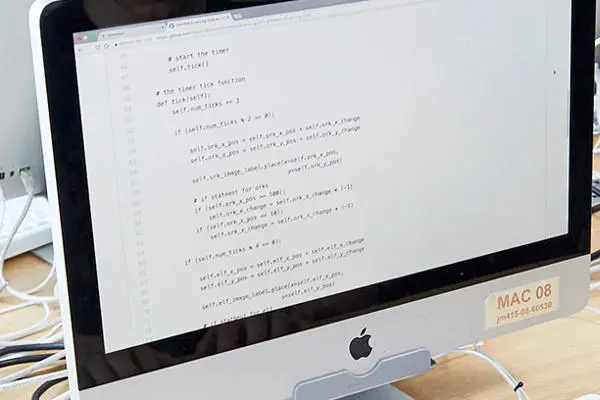
HNCData Analyst
Contact admissions
Why study a data analyst HNC at Solent University
Gain the problem solving skills and technical know-how to kick-start a career in the data analysis field.
- Top0%of UK unis for teaching quality, out of 130 institutions (Times Good Uni Guide 2026)
- £0minvestment in our campus and industry-standard facilities
- Top0best student city in the UK, out of 70 cities (StudentCrowd 2024)
- You’ll be taught in small class-based sessions.
- Study in our high-tech computer networking labs with industry-standard facilities including Cisco routers and switches, and software including Kali Linux, Metasploit and a wide range of tools capable of foot printing, reconnaissance and scanning.
Any questions?
Contact international admissions
Email: Call:Course overview
Data analysis is in high demand, with organisations increasingly requiring skilled staff to collect, analyse and interpret their data. The primary role of a data analyst is to collect, organise and study data to provide business insight. Analysts are typically involved with managing, cleansing, abstracting and aggregating data, and conducting a range of analytical studies on that data.
The worldwide growth in the collection of data and subsequent supply of information from this data has been phenomenal. Many organisations are experiencing a shortage of the skills required to perform this analysis. This course is intended to equip you with the problem-solving skills and technical knowledge required for a career in this area.
During this Higher National Certificate course, you will explore a broad range of areas, such as problem solving, statistics, programming and systems analysis as well as databases and data analysis, analytics as well as aspects of data science allowing you to develop your professional knowledge in your area of work.
Data analysts tend to be involved in collecting, organising and analysing data to provide business insight and information for business advantage.
Throughout your studies you will have the opportunity to use our modern ICT labs featuring a full range of technology and software packages.
Upon successful completion of this course, you will achieve a Data Analyst Higher National Certificate qualification.
This course is part of the South Coast Institute of Technology (IoT), a partnership of colleges, universities and industry-leading employers to create new career opportunities in the technology sector. IoT courses like this one are precisely tailored to the needs of employers in the maritime, engineering and digital industries – industries which are hungry for talented new engineers, technologists, technicians and creatives like you.
Accreditations
Part of:

Higher Technical Qualification

Who is this course for?
This course is open to a wide range of learners of all ages and backgrounds who are looking to make the steps to move into a career in data analysis.
What does this course lead to?
IT generally is a massive growth area - now the largest sector in the UK economy. Employability prospects are likely to be very high - with the additional opportunity to progress onto Level 5 of an existing degree programme within the computing area at Solent.
Typical job titles include: data analyst, departmental data analyst, energy data analyst, junior analyst, marketing data analyst, problem analyst.
Meet the team
The University cannot guarantee any particular members of staff will teach specific aspects of the course in the future, but will endeavour to ensure the teaching team maintains their balance of experience and qualifications.
Facilities
Throughout your studies you’ll have access to our technology labs and software packages to support and aid your learning.
Our vibrant campus brings state-of-the-art facilities to enhance your learning and elevate your student experience. Our award-winning teaching building, The Spark is centred around students and offers a stimulating study environment with flexible learning spaces. Away from studying, why not try out the gyms, fitness studios and sports halls in our £28 million Sports Complex, or watch a blockbuster film at our student-run cinema with Dolby Atmos audio.
What you'll study
Core modules
Introduction to Cyber Security
Through this module students will learn the basics of being safe online, learn about different types of malware and attacks, and how organizations are protecting themselves against these attacks and explore the legal and ethical issues and career options in cybersecurity.
Applied Computing Project
This module offers you the opportunity to bring together all your knowledge and skills into a real-world based project of your choice.
Data Analysis, Tools and Application
The module covers data life cycle process, collecting, cleaning, processing, analysis and interpretation. A number of different technologies and processes will be used including: types of data, data collection and processing, legal and ethical Issues, quantitative measurement and probability, data visualisation, cluster analysis, regression analysis, trendlines analysis and decision analysis.
Introduction to Databases
In this module you are introduced to the skills and concepts required to develop and use relational databases. You will learn how to write programs interacting with databases and how to create them.
Principles and Methods of Data Analysis
This module will provide you with a fundamental understanding of core principles of data including understanding the different types of data, data quality, lifecycle and architecture along with an overview of the main legislation, security and ethics when collecting, storing and processing data. You will also look at the information requirements of organisations and explore how to model, analyse and present the data to meet those requirements. In doing so, you will use basic numerical and statistical techniques, languages, and tools.
Problem Solving though Programming
This module will introduce you to software implementation through the process of understanding how to solve problems using programming.
Systems Analysis and Design Work-based Project
Systems analysis is a project-driven process that ensures that information systems are designed, developed and maintained in ways that provide optimum value to companies and clients.
Any questions?
Contact international admissions
Email: Call:How you will learn and be assessed
You will learn by:
You will be assessed by:
- Group work
- Coursework
- Reports
- Oral presentations
- In-class tests
- Online tests
- Portfolios
- Practical activities
- Project work
Solent’s curriculum framework builds on our unique, creative and applied approach to teaching. The transformation of students’ lives is at the heart of our mission as a university, and our curriculum – informed by the latest theory – reflects this shared educational vision.
Find out more
Study support
The student achievement team are on hand to help you succeed during your studies at Solent. They aim to contact you at key times during your time here with personalised information, advice and guidance, by email or phone.
The disability advice team provides information, advice and guidance for disabled students.
All students can access Succeed@Solent, Solent's online guide to getting better grades. It offers extensive, practical information and advice on topics such as academic writing, research and presentations.
Why choose a career as a data analyst?
The worldwide growth in the collection of data and subsequent supply of information from this data has been phenomenal. Many organisations are experiencing a shortage of the skills required to perform this analysis. This course is intended to equip you with the problem-solving skills and technical knowledge required for a career in this area.

You could earn:
Data analyst
Graduate scheme entry level: £25,000 to £30,000
With a few years' experience, salaries can rise to between £30,000 and £35,000.
The stated salaries are published on prospects.ac.uk. Income figures are intended as a guide only.
Solent Careers
The Solent Careers team is committed to getting students into great careers.
While you are studying, the team can help you with finding work experience or placements, link you with a mentor, check your CV, or offer one-to-one guidance.
We also have graduate job opportunities just for Solent graduates.

6th
UK uni for sustained employment
Longitudinal Educational Outcomes, 2022
Certificate in Practical Artificial Intelligence
Every student at Solent University will also have the option to study an additional Certificate in Practical Artificial Intelligence qualification alongside their course. Free of charge, the course ensures you'll be prepared for a fantastic and varied career after graduation.

Further study
Thinking about studying further than an HNC qualification? Take a look at the undergraduate courses you could progress on to.
Tuition fees
The tuition fees for the 2026/27 academic year are:
- UK, ROI, EU (settled status) and Channel Island full-time fees: £9,790 per year
- International full-time fees: £13,518 per year
For further information, please visit our tuition fees page.
Extra course costs
While most course costs are covered by your tuition fees, some essential resources and optional extras may need to be paid for separately. For advice on budgeting and managing your money, please contact student.funding@solent.ac.uk.
Bursaries, scholarships and financial support
Solent University offers a range of bursaries and scholarships that provide financial assistance or waive fees for tuition or accommodation. Each bursary or scholarship has specific eligibility criteria. Check out our bursaries and scholarships pages to find out more.
Cost of living support
At Solent, we understand that the cost of living crisis may be of some concern. To help, we've put together some detailed information to show what support is available and how to make your money go further.
Graduation costs
There is no charge to attend graduation, but you will be required to pay for the rental of your academic gown (approximately £45 per graduate, depending on your award). You may also wish to purchase official photography packages, which range in price from £15 to £200+. Graduation is not compulsory, so if you prefer to have your award sent to you, there is no cost. Extra guest tickets will go on sale after results publication and will be sold on a first-come-first-served basis. The cost per ticket is currently £20. Please note, we do not guarantee there will be any extra tickets available to purchase.
Any questions?
Contact international admissions
Email: Call:Entry requirements
Please select an option below:
Key entry requirements
16 points minimum at level 3 from either 6-unit or 3-unit awards
- Plus 4 GCSE/O Level grade C or above to include English and Maths
- or BTEC/Edexcel Advanced GNVQor National Certificate Diploma in a Computing related discipline
- or relevant Access course
- or other qualifications which are considered to be equivalent of the above.
- Applications from mature students and non-standard applicants may also be considered.
Key entry requirements
As a general guide, we look for qualifications that are equivalent to the British high school A-levels.
If you are applying from outside the UK, find information about entry requirements, visas and agents for your country here.
For further information about EU qualifications, please see our course entry requirements document.
Key entry requirements
As a general guide, we look for qualifications that are equivalent to the British high school A-levels.
If you are applying from outside the UK, find information about entry requirements, visas and agents for your country here.
For further information about international qualifications, please see our course entry requirements document.
Note to all international students requiring a visa
All international applicants need to be aware that the English language requirements to attend Solent University, and the English language requirements to obtain a visa from the Home Office, may be different. This means that if you meet the Solent University language requirement to gain a place on the course, you may still have to meet additional requirements to be granted with a visa by the Home Office.
We strongly advise all applicants to visit the Home Office website which outlines all the requirements for a successful visa application.
How to apply
Full-time
Any student applying for the first year of a full-time/sandwich undergraduate course must apply through UCAS (University and Colleges Admissions Service). This includes mature, overseas and EU students.
Nearly all schools and colleges offer their students the facility of applying electronically through the UCAS website using 'Apply'; it may also be used by those applying independently in the UK and overseas. This facility and all course information can be found on the UCAS website: www.ucas.com.
Your application should reach UCAS by 14 January if you hope to enter a course the following autumn. Early application is advised for the most popular subject areas. Late applications may be made until the end of June. The UCAS Code for the University is S30, code name SOLNT.
Find out what happens after you apply
Contextual offers
Solent endeavours to offer learning opportunities to students from all backgrounds. When we receive and review an application, we take into consideration the context and personal circumstances of applicants when making a decision, which means our advertised entry tariff could be reduced.
Find out more about Solent's contextual offers
Alternative entry options
Applications are welcomed from students who do not have the academic qualifications listed above but may be admitted on the basis of relevant experience rather than standard qualifications.
Important note about progression routes:
Progression to a Pearson Higher National Diploma (HND) qualification is not automatically available after completion of this Higher National Certificate (HNC) course.
Solent’s HNC is awarded under a Trademark Licence and the final award from this course, although mapped closely to Pearson’s programmes, is not a Pearson BTEC Higher National award.
Candidates wishing to progress onto a course at another provider may need to complete additional modules or check with the provider if acceptance to the progression course will be available with the HNC award. Many providers offer recognition of prior learning, but this will be on a case by case basis.
Students graduating from Solent do have progression routes at Solent University to degrees or to other professional qualifications.
Language requirements
Applicants who do not have English as their first language will be required to demonstrate an approved level of proficiency in the use of the English language. The agreed minimum requirements for this course are:
- IELTS minimum 6.0 overall with a minimum of 5.5 in each individual component.
- Duolingo English Language Test - 115 overall with minimum of 95 in each component or equivalent.
TOEFL IBT tests taken prior to 21 January 2026
- Minimum overall score of 80 with a minimum of 20 in each individual component.
TOEFL IBT tests taken from 21 January 2026
- Minimum overall score of 4.5 with a minimum of 4 in each individual component.
Qualifications are checked before enrolment, and international students must bring their original certificates or certified copies when coming to study at the University.
Pre-Sessional English programme
The University also offers a pre-sessional English programme for international students who wish to improve their level of English before starting a degree course.
Any questions?
Contact international admissions
Email: Call:Make your application
- 1 year full-time











